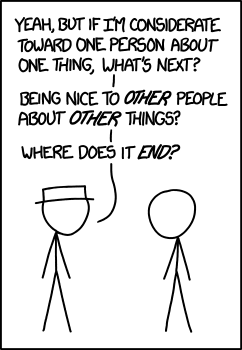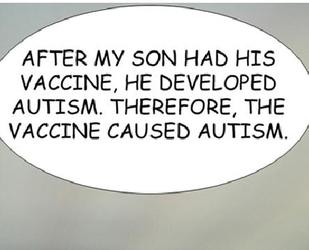AP Style Prompt:
The technique of a first-person narrator presents certain problems of objectivity and reliability for the reader. Write a well-organized essay in which you examine the character of Gatsby as Nick perceives him. To what extent is Nick a reliable narrator, and is his evaluation of Gatsby ultimately just? Be certain not to summarize the plot or offer a mere character description.
The Great Gatsby is a book told from the perspective of Nick Carraway, who throughout the book describes the plot and the characters in details that helps the readers understand them better. However, just as most first person narrators in a story, Nick isn't as reliable a source for understanding Gatsby's character. Throughout the book Nick is biased with his descriptions of Gatsby, judging him and sympathizing with him, thus clouding his view of who Gatsby truly is as a person.
At the beginning, Nick mentions how Gatsby was the embodiment of everything he hated in a person, and it's shown throughout the book, making Gatsby appear shady and obsessive, fake even. Nick describes him as someone who pretends to be someone he's not when in reality he was "a penniless young man without a past, and at any moment the invisible cloak of his uniform might slip from his shoulders," (156). He also used hasty nerve-wracking actions Gatsby performs throughout the book to describe his character, mostly negatively throughout the book. Having him do things like toss a bunch of fancy shirts from England into a messy pile for Daisy to look at or showing her clippings from articles that were about her made him appear obsessive and trying too hard to impress her. Even though that is, in a way, true, the judging and critiquing way he shows it makes Gatsby seem more like a monster or a freak rather than a person.
It wasn't really until later in the book when Gatsby started showing more positive traits about Gatsby, but even then, it was still biased. Nick begins to sympathize with Gatsby is a way where he places him as a victim in the story and throws Daisy and Tom into the villainous roles near the end. Near the end of the story, Gatsby's bad traits begin to be overlooked and instead overshadowed by the newly founded love Nick develops toward him. He described his dream to be with Daisy as pure rather than an obsession like he hinted at in the beginning of the book, and he justified Gatsby's actions when it came to the choices he made to change his social class and his persona that he exploited in order to win over Daisy. It's practically a different character he's describing by the end of the book by abandoning the original character he described at the beginning.
It's true, although, that Nick was detailed in describing Gatsby's backstory to help the readers understand who Gatsby is. However, that was turning point in which Nick abandons his judgmental description of who Gatsby is for the sympathized version of Gatsby. In the beginning of the book, the reader will most likely fell like there is no good character because everyone seems to be terribly flawed (with the exception of the narrator). Near the end, though, the reader begins to pity Gatsby and love him more as a character compared to the others. Why? Because Nick begins to sympathize with Gatsby and pity him too, and as a result, describes him as someone more likable for the reader to pity and care about more as well.
...
......Welp. That's all I got, Mr. Giddings...
Writing Records
This is a blog filled with crappy english assignments written by the one and only Abegail Tupuola~ I'm so sorry for those who read through all of this...
Monday, June 6, 2016
Sunday, May 29, 2016
Shooting an Elephant Questions
1. George Orwell has a negative attitudes regarding imperialism, the native peoples, and his own position in Burma. He states, "...I had already made up my mind that imperialism was an evil thing and the sooner I chucked up my job and got out of it the better." He also states, "As for the job I I was doing, I hated it more bitterly than I can perhaps make clear." and uses derogatory terms such as "yellow faces" and "coolies" to describe Asians and Natives.
2. Orwell views the nature of imperialism as such: The only power white men have is the facade of control they put impose on people when it is actually the other way around.
3. Orwell mostly felt compelled to shoot the elephant out of peer pressure that arose from his status as a tyrant from a foreign land and the need to be liked.
4. You want to hear my honest opinion about Orwell? He's a jerk and lower than the scum of the earth in this story. His pride makes me so irritated that he would only shoot a poor creature for the sake of his dignity. If the younger men believed that the elephant shouldn't have been killed because the man it killed wasn't worth it, then let me just say that Orwell's dignity was definitely not wroth the death of an elephant because he himself is just as lowly as the "coolie." And also, the older men who praised for killing the elephant because it was out of control and needed to be taken care of obviously have no idea how different a freaking dog is from A FREAKING ELEPHANT!!!!......That is all.
5. One of the ideas about human motives that he describes is how in the end, people usually care about themselves and if they have to, they'll do what they can or need to in order to save themselves. He basically says that everyone follows the "Every man for himself" policy, which only true to some people because there are good-hearted people! This idiot who shot the elephant for the sake of protecting his own nonexistent dignity is a perfect example of a horrible human with no soul and motives to save themselves when it comes down to the last straw. However, in my life, I have seen and met genuinely nice people who are there to help you out and support through whatever is going on in my life. It's called selflessness, and I've seen it many times in rare yet memorable people including my friends and family. Orwell can go suck on an egg for all I care. THERE ARE GOOD PEOPLE IN THIS WORLD ORWELL! STOP BEING SO FREAKING NEGATIVE AND CONSERVATIVE!!!
2. Orwell views the nature of imperialism as such: The only power white men have is the facade of control they put impose on people when it is actually the other way around.
3. Orwell mostly felt compelled to shoot the elephant out of peer pressure that arose from his status as a tyrant from a foreign land and the need to be liked.
4. You want to hear my honest opinion about Orwell? He's a jerk and lower than the scum of the earth in this story. His pride makes me so irritated that he would only shoot a poor creature for the sake of his dignity. If the younger men believed that the elephant shouldn't have been killed because the man it killed wasn't worth it, then let me just say that Orwell's dignity was definitely not wroth the death of an elephant because he himself is just as lowly as the "coolie." And also, the older men who praised for killing the elephant because it was out of control and needed to be taken care of obviously have no idea how different a freaking dog is from A FREAKING ELEPHANT!!!!......That is all.
5. One of the ideas about human motives that he describes is how in the end, people usually care about themselves and if they have to, they'll do what they can or need to in order to save themselves. He basically says that everyone follows the "Every man for himself" policy, which only true to some people because there are good-hearted people! This idiot who shot the elephant for the sake of protecting his own nonexistent dignity is a perfect example of a horrible human with no soul and motives to save themselves when it comes down to the last straw. However, in my life, I have seen and met genuinely nice people who are there to help you out and support through whatever is going on in my life. It's called selflessness, and I've seen it many times in rare yet memorable people including my friends and family. Orwell can go suck on an egg for all I care. THERE ARE GOOD PEOPLE IN THIS WORLD ORWELL! STOP BEING SO FREAKING NEGATIVE AND CONSERVATIVE!!!
The Destruction of Culture
Music is an artifact that justifies war but destroys culture. Some artists encourage violence through the lyrics they compose. One of the ways they continue carrying on this underlying theme of violence is to mask their songs with a catchy beat that listeners can enjoy, if not completely understand. As this combination of lyrics and music becomes successful and slowly makes its way into mainstream culture, it sets a standard for what upcoming tracks need to sound like in order to become popular and make money, which is ultimately what companies look for in their decision of which music to put out. As a result, we see a cycle of consumers blindly buying meaningless beats for the sake of their own superficial pleasures and producers constantly trying to meet them.
Like war, music can also be a perversion of human desire. We pursue certain musicians for reasons beyond the sphere of logic and morality to breed more nonsensical music whose justifications have more to do with our individual, selfish desires than the benefit of humanity as a whole.
Thursday, May 5, 2016
High School Confidential Analysis Questions
1. Denby uses opposition like "Everyone is afraid of her; that's why she's popular," and exaggerations such as "a waist as supple as a willow," to describe the female villain of teen movies.
2. Denby's description of the female villain focused on what she said and looked like while his description of the male villain focused briefly on his appearance and mainly on his actions. This difference suggests that looks matter a lot for females along with the things they say, but guys are only accounted on the things they do (on the most part).
3. To me, the change in tone occurs when Denby switches from talking about the movie characters to talking about the people who created those movies. His sentence structure changed along with his diction, which helped established his change in tone.
4. There's a break between paragraphs 3 and 4 because the subject changed from movie characters to the genres of films.
5. By saying directly after the question that the scenes provide emotions within the audience by over-exaggerating scenes that people can relate to.
6. Films. He used a handful of films as examples and made comments on it as support.
7. Denby's main argument is of the common use of stereotypes in high schools and the impact it has on high school students. He also talks about the overuse of these stereotypes in films using examples and finding patterns in all of them.
9. He uses the victim characters in the movies as examples since they're always going through a bunch of crap, especially from the bullies and villains of high school, but they're also talented and smart and stick out in so many ways. They're bound to be successful people and being able to make it through the issues they're having right now helps.
10. He uses the movie Carrie as an example with a girl who was tricked and humiliated and retaliated, something the boys should be able to relate to.
11. Kind of like "breaking stereotypes," these films bring more into the genre and make it more complex. It different from the usual over-usage of stereotypical archetypes which is something that Denby spoke about in this essay.
12. The audience for this essay would most likely be teen high school students. He considers the audience by speaking as if he was their teacher lecturing them, speaking directly to them and in words and phrases they would understand and relate to.
Wednesday, March 23, 2016
Political Analysis
Film Theory: How Trump is Winning With Reality TV
Speaker/Persona: Matthew Patrick, YouTuber, known for making theories with in-depth evidence
Audience: his subscribers and other people using YouTube, people into politics; just about everyone
Subject: Donald Trump and a theory as to why he's doing so well in the elections
Purpose: assessing the tactics and strategies Trump uses in his campaign
Matthew Patrick created this video on YouTube mostly because he found it interesting how similar Donald Trump's campaign was to Reality TV, and he wanted to inform everyone else about his epiphany. He uses humor throughout his video and includes evidence, both professional articles and things that people can relate to and understand easily to prove his point and make his argument/theory stronger.
Yeah, that's all I got...
Speaker/Persona: Matthew Patrick, YouTuber, known for making theories with in-depth evidence
Audience: his subscribers and other people using YouTube, people into politics; just about everyone
Subject: Donald Trump and a theory as to why he's doing so well in the elections
Purpose: assessing the tactics and strategies Trump uses in his campaign
Matthew Patrick created this video on YouTube mostly because he found it interesting how similar Donald Trump's campaign was to Reality TV, and he wanted to inform everyone else about his epiphany. He uses humor throughout his video and includes evidence, both professional articles and things that people can relate to and understand easily to prove his point and make his argument/theory stronger.
Yeah, that's all I got...
Wednesday, February 24, 2016
Joy: A Subject Schools Lack
The general argument made by Susan Engel in her work, Joy: A Subject Schools Lack, is that joy is treated as an enemy to learning. More specifically, Engel argues that the joy in learning is a necessity in a child's education, not just an option or an obstacle. She writes, “Decades of research have shown that in order to acquire skills and real knowledge in school, kids need to want to learn.” In this passage, Engel is suggesting that students need to be interested in what they're learning in order to take the information given to them and process it. In conclusion, Susan Engel’s belief is that pleasure is needed in order for students to learn.
In my view, Susan Engel is right, because I can relate as a student. More specifically, I believe that finding pleasure in what you're trying to learn has always been an important part of learning, and it needs to be reenforced into the education system. For example, students, from what I've seen, learn more easily when they're more interested in what they're doing.. Although some might object that and say that it's possible for students to learn if they just concentrate and work harder, I maintain that it's easier for me to learn in the classes I have taken interest into, like my chemistry class for example. Therefore, I conclude that pleasure and joy should be a part of the school and education system as a catalyst for students' learning.
In my view, Susan Engel is right, because I can relate as a student. More specifically, I believe that finding pleasure in what you're trying to learn has always been an important part of learning, and it needs to be reenforced into the education system. For example, students, from what I've seen, learn more easily when they're more interested in what they're doing.. Although some might object that and say that it's possible for students to learn if they just concentrate and work harder, I maintain that it's easier for me to learn in the classes I have taken interest into, like my chemistry class for example. Therefore, I conclude that pleasure and joy should be a part of the school and education system as a catalyst for students' learning.
Subscribe to:
Posts (Atom)






